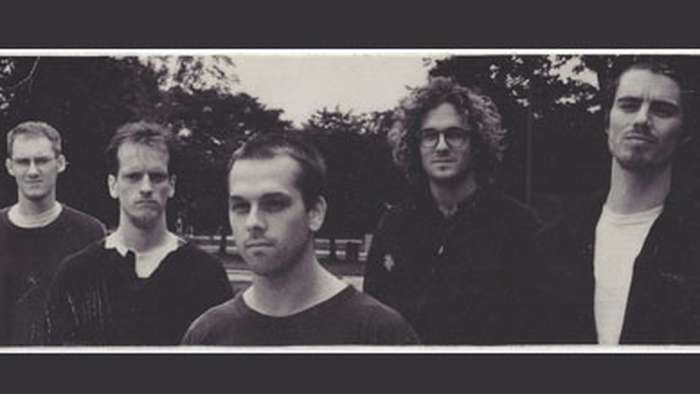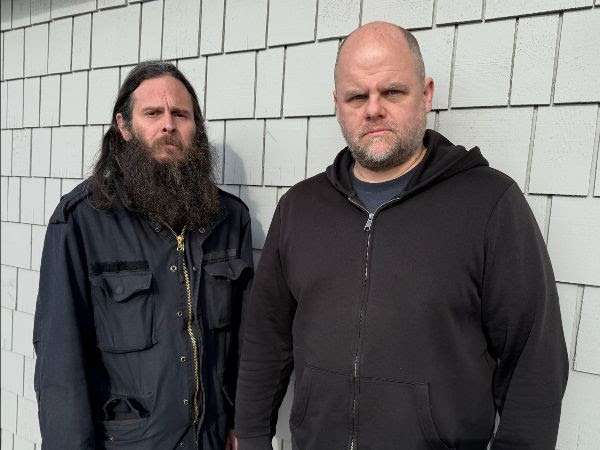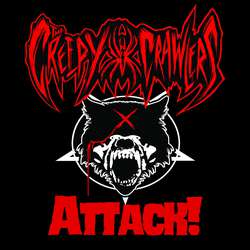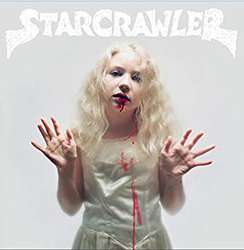Craw is a band that flew under the radar for most of its career, retaining an underground fame through the '90s and releasing three great albums in the process. The band was founded in 1989 in Cleveland and released a total of four full-length records. But it was their first three albums: the self-titled debut, Lost Nation Road, and Map, Monitor, Surge that really stuck. Craw would have a reinvigoration in 2002 with Bodies for Strontium 90, an album that was released through Hydrahead, but unfortunately that would also signal the end for the band. However, Northern Spy Records is putting out a box-set containing the three original albums of the band, in remastered versions, in the hope of reigniting the interest on Craw and highlighting their importance in the history of extreme and experimental music scenes.
Craw had an expansive view of post-hardcore, post-rock, mathcore, and metal. Their musicianship was excellent: being able to construct complex song structures, adding additional elements--through jazz infusion and drone passages--to their core sound in order to mould all these different aspects together into their own cohesive sound. Underneath all that, Craw would feature a very dark demeanour, an underlying twisted sense that highlights the contrast at their core.
The band was simply ahead of its time since their inception. Their sound was difficult to get used to. The atmosphere that they constructed was dark and everything about them appeared bizarre. And that is something that got exponentially more intense as they released album after album. But, let's start at the beginning.
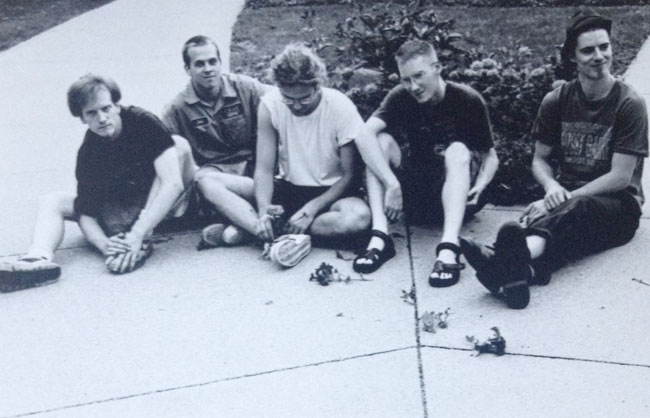
In 1991 the band recorded their debut album in the span of just three days with Steve Albini. As Albini mentions elsewhere, the whole process was a marathon but the fact that Craw were excellent musicians made the process a bit easier. Craw, in the end, would be the band's most straightforward album (out of the first three,) featuring a high level of intensity, complex rhythmic patterns, excellent use of dynamics, as well as intolerable weight.
At this stage Craw were still relying more heavily on aspects of metal in order to achieve a ruthless characteristic. Tracks such as “Aphasia” contain probably the most direct approach of Craw in terms of their metal influence, while “Cobray To The North” becomes more relentless with the inclusion of metal riffs. “My Sister's Living Room,” on the other hand, sees Craw taking on a heavy metalcore form with chugging riffs pummelling down, while “Thinnest Line” finds them unleashing Slayer-ized lead parts to enhance the schizoid essence of their music. That would only scratch the surface of their metal self. “Worldfall,” for instance, sees the band moving into doom territory, with the adaptation of drone parts and use of feedback to craft this dystopian essence.
However, apart from this strong metal sense, Craw also moved in the domain of post-rock. “Echolocating” sees them taking on a cool, rocky vibe with a fair amount of melancholy and despair as well, unleashing great hooks. Their exploration in this domain would also reveal the incorporation of the claustrophobic approach similar to acts such as Tool at certain times. “Eidolons” features that aspect, enhanced further by the weight of the guitars. “1st Wednesday of the Month” and “My Sister's Living Room” both share that post-rock element, while in “Slower” the band would move closer to the territory of acts such as Slint, with that sort of spider web guitar lines filling the space.
Of course the post-hardcore core of the band is always present throughout the album. The intensity of “405” through its disturbing start, whispery vocals and great use of dynamics, builds up the track for a destructive explosion in its final minutes. “Child Reader” is a more chaotic ride, with the cyclonic start and the rhythmic patterns just taking over, and the dissonance at a high. In a more ruthless tone “Stomp” sees the band bringing all of their ferocity forth with the rhythm section stealing the show.
But apart from just their crossing over different musical domains, Craw were able to fill their music with so many different qualities. The dissonance of their work is apparent from the get go, with tracks such as “Elliot” revealing the whole extent of their twisted essence while the incorporation of ambient parts, as was the case with “Cobray To The North” and especially “1st Wednesday of Every Month” and “Worldfall,” would let on an even colder and more detached vibe. Coupled with the despair and melancholy that some of the tracks would radiate, for instance “Thinnest Line” and “Echolocating,” the album was a lot to stomach.

Just one year after Craw's debut album was released, the band entered the studio again with Albini in order to record its successor, Lost Nation Road. The sophomore album would signal a change for Craw, finding them in a stage where they tried to distance themselves from their post-hardcore and metal elements and find their own unique sound. The album in this instance was more driven by the rhythm section, comprising of Neil Chastain and new bassist Zak Dieringer.
That does not mean that certain leanings were not apparent in Lost Nation Road. The heavy weight of “Lifelike” featured the doom essence that was obvious in tracks of the debut album, while “Feesh Crik” found them caught somewhere between their metal self and their post-hardcore approach. If anything the record leaned more towards a darker side of hardcore, something that comes across early on with “Sound of Every Promise.” Other elements were the great use of dynamics in their structures, with “Shocklight” and “Botulism, Cholera + Tarik” showcasing that aspect of the band.
However, Craw's music was coming across much darker in this instance, whether it was the dark hardcore of the opening track, or the dark post-rock of “Stronger Human Bond.” There was a certain twisted feeling that was overwhelming in their music, which found a perfect fit with the more aggressive takes of tracks such as “Botulism, Cholera + Tarik.” Craw would still dwell into their melodic side with moments such as “As Long As The Turnpike” but that did not lift the darkness from their concepts.
Still, Craw pushed the boundaries even further. A drone approach already existed in their debut album, something that carries on in Lost Nation Road with instances of “Lifelike” and “All This Has Made Me.” But what was also new here was a certain lean towards no-wave . “All This Has Made Me” featured a continuity reminiscent of Swans' approach to song structures. The patterns and the progression of the track definitely had something of that scene, as is also obvious in “I Fought Dirty.” And if all this was not enough, Craw started to feature jazz elements even more heavily this time around. The saxophone appearing in “Botulism, Cholera + Tarik” sees the band going to a mode of heavier improvisation, something that is also present in “All This Has Made Me.”
Lost Nation Road ends up asthe darkest moment of Craw's discography in my opinion. There is a murky quality about the record, while the stretch of the band to move outside the confined spaces of metal, hardcore, jazz and post-rock and find themselves, characterizes the album. As a result their true form came to the surface, and it would unfold even more with Map, Monitor, Surge.
The line-up of Craw would change to include Will Scharf (also of Keelhaul) alongside existing members Dieringer (bass), Brockway and McClelland (guitars) and McTighe (vocals). Scharf's seems to have brought a change on the vibe of the music as well, with Map, Monitor, Surge seeing the structures become looser, flowing with more ease instead of aggressively switching through the different parts. The album this time around was co-recorded by Steve Albini and Bill Korecky.
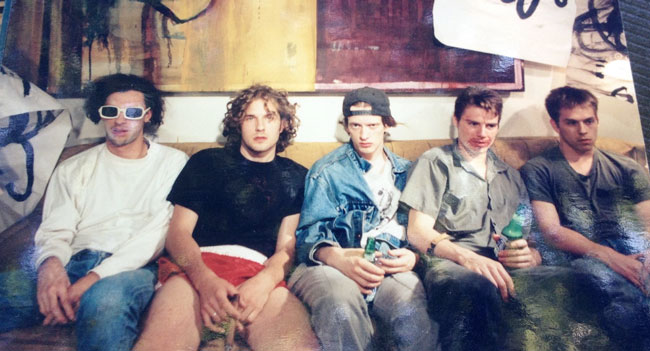
From my perspective, Map, Monitor, Surge almost completely gets rid off the metal self of Craw, with the band focusing more heavily on post-hardcore leanings. “Divinity of Laughter” sees the band unleashing their hardcore fury with a heavy dosage of energy as they unleashed their unique patterns. On the other hand, the mental state of Craw in “I Disagree (And Here's Why)” is at best questionable as the track rises to its claustrophobic self in a brutal manner, through its darkened mood. It also came down to the groove that some of their songs were able to transmit. From the drunken start of the post-hardcore “Rip and Read,” to its chaotic patterns, as well as the ones found in “Unsolicited, Unsavory” Craw were able to bend all these different aspects to their will.
The jazz essence was featured even more heavily in Map, Monitor, Surge, with tracks such as “Treading Out The Winepress,” especially that twisted laid back start, and “Hayfield,” seeing the band taking its time, slowly constructing the track through dissonant parts and digging deep in order to bring all that malice to the surface. Improvisation is still at a high level, actually much more heavily featured than in the previous works , as revealed by the bizarre patterns that the band is able to incorporate in “Creating The New Paranoid Man.” And if that is not enough, the band even goes into certain progressive rock stretches, as is the case with the lead work of “Unsolicited, Unsavory” and parts of “Treading Out.”
But the most shocking moments of Map, Monitor, Surge come with the triptych of prog-punk songs. Those tracks are just about one minute each, and they are absolutely terrific, as they are thrown in the midst of the record. “Killer Microbes Devour Cleveland” sees the relentless energy of the band condensed in this instance, as the double guitars and punishing drums unveil their remorseless approach. In a more dissonant setting, “New Plastics Diet Alters Man's DNA” takes off, as the band dwells deeper in the horrific core of their newly found prog-punk sound, while the intoxicating groove of “Parasitic Dad Evades Biocops” features an unnerving, playful attitude, with a very trippy, underlying effect.
And then, there is also the twelve minute long opus, “Days In The Gutter/Nights In The Gutter” which somehow manages to encompass almost all elements across the history of Craw. The post-rock repetition and the post-hardcore spirit are present, with a sickening groove to go alongside them. Minimal parts begin to appear, slowly building up the track into an imposing manifestation of sonic fury, breaking it down in the end and resulting in a vortex of heavy dissonance.
It would take Craw five years to release the follow-up to Map, Monitor, Surge. And even though Bodies for Strontium 90 was a good album with a more straightforward approach, it did not feel as it was in the same level as their earlier works. And that was it! Craw did not release another album after that.
Still, the legacy that the three original albums of the band had created would live on. The late '90s and early '00s would feature a plethora of post-hardcore and mathcore bands incorporating similar elements and methods. The early releases of Hydrahead are such an instance, making you wonder (in terror), how different would that scene actually be if Craw did not put out Craw, Lost Nation Road, and Map, Monitor, Surge. The re-release of these albums, in a great box-set, featuring also a book with photos and ephemera, along an oral history of the band through new interviews, might be enough to reinvigorate the interest in the band. The band also reunited for a couple of shows in December with all band members that played across the different albums taking part. However, I am not so much looking forward to a reunion of sorts for Craw and the release of new material from the band (it is too much wishful thinking, I guess.) But I do believe that more people should be made aware of what Craw achieved through their music. Hopefully this will not be (stealing Keelhaul's motto here) just a triumphant return to obscurity.
